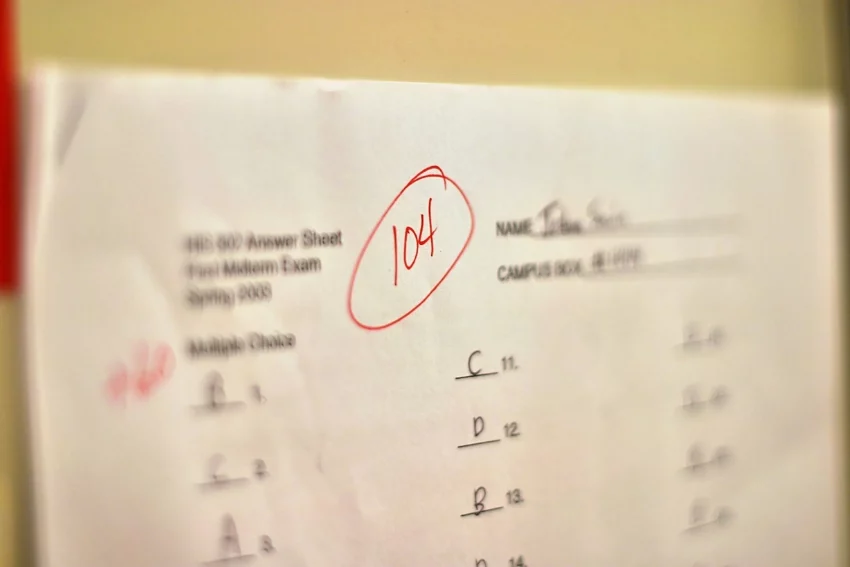National 5 qualifications are a cornerstone of the Scottish education system, equipping students with essential knowledge and skills for further education, training, or employment. Building on the foundations laid by National 4, these qualifications prepare students for more advanced studies. This guide provides valuable insights into National 5 Scotland, covering its structure, importance and benefits. Whether you’re a student, parent or educator, this blog aims to be your go-to resource for understanding National 5s.

What is National 5?
National 5 meaning refers to a qualification in Scotland that forms part of the Scottish Credit and Qualifications Framework (SCQF). It compares to the General Certificate of Secondary Education (GCSE) in England, Wales and Northern Ireland and sits at SCQF Level 5. If you’re wondering what National 5 is equivalent to in Scotland, it broadly matches GCSE Level 4-9, serving as the benchmark qualification for Scottish students aged 15-16.
Why is National 5 Important?
- Foundation for Higher Education: National 5 qualifications are essential for progressing to Higher qualifications, which are necessary for university admission.
- Employment and Training – Employers and vocational training providers across Scotland recognise these qualifications, which enhance your career prospects.
- Skill Development – National 5s focus on developing critical thinking, problem-solving and practical skills, preparing students for diverse challenges.
Subjects Offered at National 5
- Core Subjects – Mathematics, English, Sciences (Biology, Chemistry, Physics).
- Humanities – History, Geography, Modern Studies.
- Languages – French, Spanish, German.
- Creative Arts – Art and Design, Music, Drama.
- Technical and Vocational – Computing Science, Business Management, Home Economics.
The National 5 subjects are part of the scholarly system in Scotland, with different courses tailored toward students in their last years of compulsory education, usually S4-S5, which is around 15-16 years old. These courses will, therefore, lead to further education, namely, Higher or Advanced Higher qualifications and the acquisition of skills and knowledge related to different careers.
Example Subjects and Focus Areas
Mathematics – Covers algebra, geometry, trigonometry, and basic calculus.
English – Focuses on reading, writing, listening, and speaking skills.
Sciences:
- Biology – Studies of living organisms, including cellular processes, genetics, and ecology.
- Chemistry – Involves chemical reactions, the periodic table, and organic chemistry.
- Physics – Covers forces, energy, waves, and the properties of matter.
Social Studies:
- History – Explores significant historical events and periods.
- Geography – Examines physical and human geography, including environmental issues.
- Modern Studies – Looks at current social and political issues.
Languages:
- French, Spanish, German, etc. – Focus on speaking, listening, reading, and writing skills.
Technological Studies:
- Computing Science – Covers programming, databases, and computer systems.
- Graphic Communication – Involves technical drawing and design.
- Design and Manufacture – Focuses on product design and manufacturing processes.
Expressive Arts:
- Art and Design – Involves creating and understanding visual art.
- Music – Covers performance, composition, and music theory.
- Drama – Focuses on performance and production skills.
Health and Wellbeing:
- Physical Education – Involves physical activity and understanding of health and fitness.
- Health and Food Technology – Covers nutrition, food preparation, and health issues.
Business Education:
- Business Management – Looks at business operations, marketing, and finance.
- Accounting – Focuses on financial records and accounting principles.
National 5 Grading System
The National 5 grading system is a crucial part of National 5 Scotland, helping students and parents understand academic progress. These National 5 grades determine how well a student has mastered their course material. Typically undertaken in the fourth year of secondary school (S4), National 5s act as a foundation for Higher and Advanced Higher courses.
Assessment combines coursework and final examinations, with subjects graded from A to D. Each grade reflects a specific level of achievement:
- Grade A (Band 1-2) – Outstanding understanding and application of knowledge.
- Grade B (Band 3-4) – Strong comprehension with minor gaps.
- Grade C (Band 5-6) – Meets essential course requirements.
- Grade D (Band 7) – Basic understanding; improvement needed.
Students who do not meet the minimum standard for a D receive a “No Award”. Understanding National 5 grades helps families gauge performance and plan future study routes effectively.
Assessment Components
Each National 5 qualification includes several assessment elements:
Coursework – Projects, assignments, or practical assessments that demonstrate applied knowledge.
Final Examination – Tests students on core understanding, critical thinking, and problem-solving skills.
This balanced structure ensures National 5 Scotland continues to promote both theoretical and practical learning outcomes.
Preparing for National 5 Exams
Setting up for National five exams might be the most challenging task, but with the right approach and resources, you are guaranteed success. Here are some tips and strategies that will help you in your preparation.
Create a Study Plan for National 5 Exams
A study schedule needs to be created. Planning by creating a detailed study timetable will help you use your time effectively. You break it down into manageable chunks and spread them over weeks and months as exams approach. It is vital to give the priority to subjects that are not easy for you, and at the same time, you do not forget to revise those in which you are confident.
Use Past Papers
Practising with past papers familiarises students with the National 5 exam format and question styles.
Take Advantage of National 5 Study Resources
Making rich use of the resources available will massively enhance your revision. Use your textbooks and class notes to revise the essential concepts involved by highlighting key points and summarizing the information you have read in your own words. There are also online study packs, such as those from BBC Bitesize or the Scottish Qualifications Authority, including revision materials and practice questions, which may help enhance your revision.
Studying in groups can be highly beneficial. Collaborating with peers allows you to help each other understand difficult topics, quiz each other, and share resources. Explaining concepts to others can reinforce your understanding and make learning more interactive.
National 5 Tutoring and Study Groups
Don’t hesitate to ask for help. Enquire your teachers for more explanation on areas where you may be struggling; they will give you more info and resources. You can then consider joining study groups or finding a tutor if you need personalised help more often. Practise Exam Techniques for National 5 Success.
As you work through, look at how you manage your time to complete all questions within the examination time. Learn how to approach different sorts of questions: multiple-choice, short answer, or essays. By following these tips and sticking to this study plan, you will be very well prepared for your National 5 exams. That is, being well prepared gives you confidence in passing such exams, so develop the right mindset and sufficient effort, and the outcome will be great results.
Conclusion
National 5 qualifications are a vital stepping stone in the Scottish education system, offering a broad and flexible curriculum that caters to diverse student needs. By understanding the structure, importance, and preparation strategies for National 5, students can maximise their potential and pave the way for future success. For those looking ahead to university applications, understanding processes like UCAS clearing can be valuable when planning their educational journey beyond National 5. For those seeking additional support, Edumentors provides access to experienced National 5 tutors who can offer personalised guidance and help students excel in their studies, ensuring they are well-prepared for their academic journey ahead.
FAQs
How many subjects should I take at National 5?
Typically, students take around 5 to 8 subjects, balancing core and elective choices.
What is the passing grade for National 5?
The minimum passing grade is D. However, aim for higher grades to enhance your academic profile.
Can I retake National 5 exams?
Yes, students can retake exams to improve their grades.
What is a national 5?
National 5, often abbreviated to N5, is a qualification in Scotland typically taken by students in their fourth year of secondary school, usually about the age of 15-16 years. It forms part of the Scottish Credit and Qualifications Framework at the same level as GCSEs in England, Wales, and Northern Ireland.
Is National 5 harder than GCSE?
National 5 (N5) and GCSE qualifications are broadly equivalent, but there are differences in content and assessment methods. National 5 may be seen as slightly more challenging due to its in-depth coursework and continuous assessment approach, whereas GCSEs typically focus more on final exams. The N5 is the more academically advanced of the qualifications, where candidates are awarded the qualification at grades A, B, C, and D. Scottish National 5 Certificates Grades A to C are equivalent to GCSEs Grades grades 4 to 9.
What is National 5 applications?
National 5 Applications is a qualification in Scotland designed for students typically in their fourth year of secondary school. It focuses on practical skills and knowledge, preparing students for work or further study. The course includes subjects like mathematics, science, and technical studies, emphasising real-world applications and problem-solving. Successful completion can lead to further education, training, or employment opportunities.
What is the hardest national 5 exam?
The hardest National 5 exam varies for each student, but many find National 5 Maths particularly challenging due to its complex problem-solving and abstract concepts. Other tough subjects often mentioned include Chemistry and Physics, which require strong analytical skills and understanding of scientific principles.
What is the highest grade in National 5?
The highest grade in National 5 is an A.








